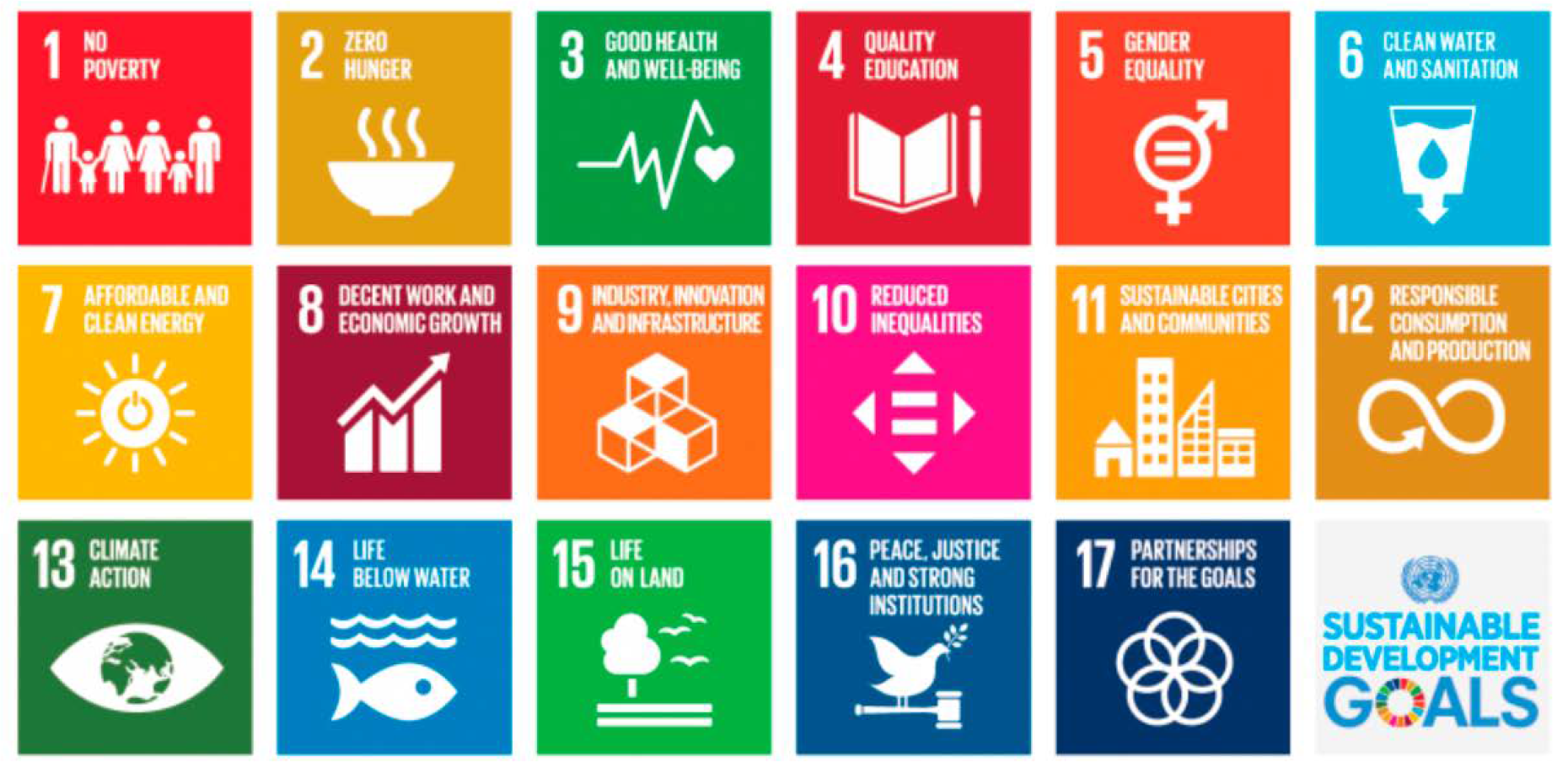Browse our range of reports and publications including performance and financial statement audit reports, assurance review reports, information reports and annual reports.
Commonwealth Auditors General Group e-newsletter (Issue 2 — September 2019)
If you have any thoughts on future technical content which you would like to propose, please contact international@nao.gsi.gov.uk
This is the second e-newsletter of the Commonwealth Auditors General Group. These e-newsletters are a genuine effort to share experiences, challenges and engage in thought-provoking discussions on topics which are common to the fifty-three member countries of the Commonwealth.
Introduction by Ajay Nand

I am very pleased and privileged to be given an opportunity to provide the introduction to this second e-newsletter of the Commonwealth Auditors General Group. These e-newsletters are a genuine effort to share experiences, challenges and engage in thought-provoking discussions on topics which are common to the fifty-three member countries of the Commonwealth.
This newsletter focuses on environmental auditing, building on the conversations we started during the XXIII Commonwealth Auditors General Conference in New Delhi. The articles cover the key aspects Supreme Audit Institutions (SAIs) have considered in developing their approach to Environmental Audit:
- Strategic importance — The first article from my own SAI Fiji sets the scene by emphasizing the importance of the 2030 agenda and the role of SAIs.
- Vision and mandate — The second article from SAI Australia demonstrates how the Auditor General’s vision for environmental audit, combined with his Performance Audit mandate has resulted in an impressive body of work which other SAIs may find useful.
- Building the capability — The third article is a valuable account of how SAI Tanzania is developing its people, methodologies and international relationships to deliver its environmental audit programme more effectively.
- Influencing and impact — The fourth article shows how SAI UK is providing support to the Environmental Audit Select Committee of the UK Parliament, and how its reports are helping Parliament hold the UK government to account.
- Capacity building — The fifth article describes SAI India’s extensive experience delivering environmental audits on diverse themes, and also introduces the International Centre for Environment Audit and Sustainable Development (iCED) — an INTOSAI global training centre based in Jaipur, India. The iCED has hosted 126 representatives from SAIs from across the globe to facilitate training and knowledge sharing about Environmental audit.
On behalf of myself and my colleagues on the Editorial team, the Auditors General of Australia, Jamaica, Tanzania and the UK, we hope that you find this newsletter interesting and that it stimulates a discussion between the SAIs of the Commonwealth. If you are interested in discussing the content of this e-newsletter, have ideas for the next topic or would like to contribute an article, please contact international@nao.org.uk.
Finally, my team at SAI Fiji and I are excited to host the XXIV Commonwealth Auditors General Conference in May 2020. I look forward to meeting and welcoming all Auditors-Generals and their delegates and we will keep everyone updated on the preparations for the conference through a dedicated portal on SAI Fiji’s website www.oag.gov.fj. As promised we have also arranged a meeting at INCOSAI in Moscow where we can discuss the XXIV conference, the e-newsletter and any other topics of interest to you.
Ajay
Auditor General, Fiji
Board of Editors

Mr Ajay Nand, Auditor General — Office of the Auditor General — Fiji

Prof. Mussa Juma Assad, Controller and Auditor General — National Audit Office of Tanzania

Mr Gareth Davies, Comptroller and Auditor General — National Audit Office, United Kingdom

Mr Grant Hehir, Auditor General — Australian National Audit Office

Ms Pamela Monroe-Ellis, Auditor General – Audit Department, Jamaica
SAI Fiji’s Environmental reporting and the 2030 agenda
In August 2019 (at the time of this article) SAIs in the PASAI region are preparing to meet in Fiji for the 22nd PASAI Congress to discuss their contributions to the 2030 Agenda of the United Nations Sustainable Development Goals (SDGs). This topic is of vital importance to the Republic of Fiji which, along with many other small island countries, is located in the great Pacific Ocean. Our island nations are most vulnerable to the elements of nature due to their size and geographical location. However, through their own efforts and with the strong support of development partners and developed nations, they are adapting and adjusting to the challenges they face.
Responding to economic, environmental and social challenges is at the core of the 2015 United Nations resolution on the Agenda for Sustainable Development. The 193 member states of the United Nations committed to implement the SDGs by 2030. SAIs have an important role to play in supporting Agenda 2030, and much has been done (and written about) already. Many SAIs across the world have audited the Preparedness for Implementation of SDGs and more recently Gender Equality and Climate Change. INTOSAI has also issued four standards under the International Standards for Supreme Audit Institutions (ISSAIs) which relate to environment and sustainable development.
It is important we keep in mind that that both public and private sectors need to report on environmental performance. For example, the Global Reporting Initiative has defined sustainability reporting as an overview of a company or organisation’s economic, environmental and social impact. A consistent approach to environmental reporting requires information to be:
- Relevant – useful information is provided on a timely basis.
- Reliable – free from errors and omissions and bias.
- Clear – easy to understand to avoid misunderstandings amongst users.
- Comparable – information reported must be comparable between different reporting periods of the organization.
- Verifiable – supported by basis which can be verified when looked into objectively.
In conclusion, successfully implementing the SDGs requires a shift in mindset from a whole-of-government to a whole-of-society approach. While much of this may be beyond the control of SAIs, we have an important voice in ensuring a consistent approach to environmental performance reporting in both the public and the private sectors. Although there is a cost to environmental reporting there are also several benefits, including; better risk management, potential savings, and better strategic decision-making. More importantly, we are making the whole economy transparent and therefore accountable to all citizens.

Australian National Audit Office (ANAO) Environmental Reporting
The Australian National Audit Office’s (ANAO’s) coverage of environmental matters reflects the responsibilities of the Australian Government and the Auditor-General’s mandate for conducting performance audits.
Australia is a federation of six self-governing states and two self-governing mainland territories, with responsibility for the protection and conservation of the environment shared across governments. Under the existing shared arrangements, the Commonwealth Government is primarily responsible for the protection of matters of national environmental significance and for implementing Australia’s obligations under international environmental treaties and conventions. The states and territories are responsible for a broad range of environmental matters, including the: regulation of pollution; approval of certain types of development activity; and regulating natural resources management.
The ANAO’s approach to auditing environmental matters is shaped by the Auditor-General’s performance audit mandate. The scope of the ANAO’s audit coverage of environmental matters is strongly influenced by the roles and responsibilities across governments in Australia. The ANAO’s Annual Audit Work Program 2019-20 sets out the portfolio responsibilities, risks and areas for improvement that have informed the audit coverage of environmental matters:
For further reading refer to:
- Environmental Audit: a Commonwealth Perspective — keynote speech given by Grant Hehir, Auditor-General for Australia, in March 2017 at the XXIII Commonwealth Auditors-General Conference in New Delhi, India.
- Sharing experience on auditing urban environmental management — keynote speech given by Grant Hehir, Auditor-General for Australia, in July 2018 at the 18th Meeting of INTOSAI Working Group on Environmental Auditing in Bandung, Indonesia.
Relevant audit reports published since July 2018 include:
SAI Tanzania’s efforts to improve its environmental audits
Following adverse impact that various human operations may have on the environment, health and safety of people, surface and ground waters, and ecosystems including marine organisms, the Controller and Auditor General of the United Republic of Tanzania, Prof. Mussa Juma Assad decided to prioritize environmental audit as one of the key audit areas every year.
In its efforts to improve its environmental audit, for the last 5 years, the National Audit Office of Tanzania (NAOT) made efforts in four (4) areas, namely: (a) recruitment and capacity building to its auditors, (b) enhance audit methodology and conduct of the audits, (c) improve overall planning, and (d) participating in regional and international initiatives on environmental audit.
The efforts to further improve environmental audit within the National Audit Office are detailed below:
Recruitment and capacity building of its auditors
In response to its mandate to conduct both Performance and Environmental Audits, NAOT decided to recruit staff with good professional background on environmental issues. Environmental experts such as environmental scientists and engineers were recruited with an intention of having staff who are conversant with environmental subjects and through that enhance the quality of environmental audits.
Furthermore, to build the capacity of environmental auditors, the Audit Office gave opportunities to the environmental auditors to participate in periodical capacity building interventions. These capacity building interventions were offered as classroom training or on-job training to the auditors on audit of environment related issues. Staff (mainly newly recruited) were attached to the audit teams conducting environmental audits to allow them work closely with senior and experienced environmental auditors. Similarly, staff regularly attended environmental audit trainings organized by AFROSAI-E, CAAF and other professional and audit institutions. During those trainings, auditors are trained on the basic concepts of environment, guiding principles and legislations, types and nature of environmental challenges and their impacts to the lives of the people and surroundings, principles of environmental auditing, techniques and reporting the results of the audit.
Enhance audit methodology and conduct of the audit
To enhance its credibility, NAOT decided to conduct a number of environmental audits in line with internationally accepted standards (ISSAIs). That involved adopting audit methodologies that are aligned to ISSAIs. Having Performance, Compliance and Financial Audit Manuals that were ISSAIs compliant was the first major step to enhance its audit methodology. For the last 5 years, a total of 15 environmental audit reports were submitted to the Parliament. This allows the Parliament of Tanzania to exercise its oversight function through its Public Accounts Committee on environmental related issues. Currently, NAOT is also conducting follow-ups on the implementation of recommendations given by the Environmental Audit reports. So far the implementation rate of audit recommendations ranges between 68 and 76%.
Improved Overall Planning
To ensure sufficient coverage of environmental audit, NAOT developed a multi-year plan for all audits that cover environmental audits. The multi-year plan which is accompanied by database for potential audit topics depicts environmental audit topics that would be covered every year in the period of five years. That helped NAOT to have a well analysed list of audit topics which address all critical environmental challenges and concerned entities. That, to a large extent, helped NAOT to have a clear focus and well defined audit scope. On the same area of audit planning, the audit office re-focused its audits to cover newly emerging areas such as oil and gas sub-sector which needed major attention on environmental accountability. For instance, NAOT published 3 different environmental audit reports on oil and gas sub-sector.
Participating in regional and International initiatives on environmental audit
In its effort to build its capacity to conduct environmental audits, the National Audit Office enhanced its cooperation with SAIs in the region and international bodies such as AFROSAI-E, INTOSAI-WGEA, etc. The cooperation was in three avenues covering: firstly, by taking part in coordinated environmental audits. Recently, NAOT was part of coordinated environmental audit of Lake Victoria which involved SAIs of Uganda, Kenya and Tanzania. NAOT was also involved in coordinated environmental audits organized by AFROSAI-E on marine protection where different SAIs which are along the coastline of Indian Ocean took part. Secondly, by being active member and actor of Regional Working Group on Environmental Audit. NAOT was a coordinator of Environmental Audit related issues for the period 2007 – 2013 as RWGEA coordinator and it is still a member of WGEA. Thirdly, NAOT has been providing regional trainers on Environmental Audit related trainings and resource persons in developing various guidelines. Staff who took part in those trainings had the opportunity to not only impart knowledge to other auditors in the region but also learn a lot through that process.
The process of building the capacity of a SAI to sustainably conduct environmental audit is a multi-dimensional process which focuses on a number of factors which are linked. This means that SAIs needs actors such as INTOSAI-WGEA, other international and regional bodies involved in environmental auditing, academic institutions and CSOs to enhance its capacity to conduct environmental audits. The academic institutions have role to train experts and provide new insights on the subject through their research whereas other actors are important in information sharing covering practical aspects of environmental matters.
The UK National Audit Office: Supporting Parliament’s work on Environmental Sustainability
The UK NAO has produced a range of audit reports on environmental sustainability. Our work includes a series of sustainability overviews examining how different parts of government fulfil their sustainability remit, as well as in-depth reports on specific policies or programmes. Examples include, the new farming programme, environmental metrics, low carbon heating, air quality and carbon capture & storage. Our reports can be found here. To ‘practice what we preach’, the UK NAO publishes its environmental and sustainability performance here.
We have a longstanding programme to support the UK Parliament’s Environmental Audit Committee, producing briefings or reports in response to the Committee’s requests, following consultation about where NAO can add most value. For example, in 2018 the UK’s environmental audit Parliamentary committee requested that the NAO examine the UK’s packaging recycling obligations.
Context of our report on packaging recycling obligations
The government introduced recycling obligations in 1997 when it chose to establish a market-based system for incentivizing recycling of packaging waste, as part of implementing an EU Directive on packaging.
Reducing waste and using resources more efficiently are long standing policy objectives for many governments including the UK. Tackling packaging waste is essential to achieving these ambitions, as it is a significant source of waste, with UK households and businesses using an estimated 11 million tonnes of packaging each year. There is particular public and scientific concern about plastic packaging waste, because of the extent of plastic litter in the oceans.
The obligations are a complex set of arrangements that act as a financial incentive for the recycling of packaging. Companies that handle packaging (and that meet certain thresholds1) are required to demonstrate that a certain amount of packaging has been recycled. They do this through obtaining recovery evidence notes from UK reprocessing plants or from companies exporting waste for recycling abroad (see Figure 1).
Key finding: managing the risks of packaging exports
One of our key conclusions was that the system relied on exporting materials to other parts of the world without adequate checks to make sure all of this material is actually recycled.
We found that the total amount of packaging waste exported abroad had increased sixfold since 2002, while the total amount recycled in the UK had remained steady. Exports accounted for half of all packaging recycled through the system in 2017 (see Figure 2).
Compliance visits are an important way for government to check that reprocessors and exporters make accurate claims for the amount recycled. Yet we found that the Environment Agency carried out less than 40% of the number of compliance visits it planned to in 2016-17. Moreover, it failed to use its own risk analysis work to target these visits, with exporters it rated high risk actually less likely to receive a visit than those it rated low risk.
Overall, we concluded that system was likely to have made a contribution to an increase in packaging recycling rates. However, it appeared to have evolved into a comfortable way for government to meet targets without facing up to the underlying recycling issues.
Impact
The report had a high media impact, with the report’s web page viewed almost 70% higher than average, and with interviews across national and local media. The Environmental Audit Parliamentary Committee used the report to inform a constructive evidence session, and the Chair tweeted that our work with the Committee on this issue had been a ‘triumph’.
It is early days for seeing an impact in government, but there are already positive signs. The Agency has since published a new monitoring plan for the packaging recycling obligation system, setting out plans to double inspections for high risk companies in 2019. The Agency approached us with a request to continue discussions about how it can improve its approach to fraud and error in the scheme to meet our recommendations, and in January 2019 we hosted a workshop to discuss lessons from our wider work on fraud and error across government.
For more information about the UK NAO’s work, please contact: international@nao.org.uk
How the packaging obligation system relates to the flow of packaging waste in the UK
Figure 1: The packaging regulations establish a market-based system for incentivising packaging recycling

Note a: Funds shown are only those directly related to the system.
Note b: 93% of producers fulfilled their obligation by becoming a member of a compliance scheme in 2017.
Source: National Audit Office analysis
Reported weight of UK packaging recycled, by location of reprocessing (UK or abroad), 1998 to 2017
Figure 2 The increase in the total amount of reported packaging recycled has been mostly due to an increase in exports

Source: National Audit Office analysis
Environmental Audit in India
SAI India has taken various steps to develop environmental auditing as a specialized domain of work. SAI India has adapted its mandate to auditing environmental issues in the context of sustainable development and India’s commitment towards achieving the United Nations’ 2030 agenda for Sustainable Development Goals (SDGs).
The office of the Director General of Audit, Scientific Departments is the focal office for environmental audit, at the federal and the State levels.
Audit approach
The approach to environmental audit involves selection of topics by risk assessment, understanding the relevant issues through interactions with stakeholders as well as external experts and preparing a comprehensive framework for audit. The audit objectives include examining whether Government interventions have been aligned with the relevant SDGs and the extent to which these have progressed towards fulfilment of the 2030 agenda. The audit comprises documentary analysis and assessment of onsite conditions using satellite data and physical inspections.
The road travelled
Over the years, SAI India has carried out more than 100 environmental audits on issues like air and water pollution, waste management, biodiversity, etc. The audit findings and recommendations have made significant impact on policy formulation and implementation of environmental issues. Figure 3 contains a few notable federal audits.
Environmental Audit Reports of SAI India
|
Theme |
Subject of Audit |
Key Audit findings |
Executive response |
|
Environment |
Compensatory Afforestation in India (2013) |
|
|
|
Energy |
Renewable Energy Sector in India (2015) |
|
|
|
Water |
Rejuvenation of River Ganga (2017) |
|
|
|
Biodiversity |
Conservation and Protection of Tigers in Tiger Reserves (2006) |
|
|
Some of the significant audits conducted at the State level relate to:
- Kaziranga National Park-Issues and Challenges;
- Solid Waste Management in Urban Local Bodies;
- Pollution by Industries in West Bengal;
- Compliance with Environmental Laws.
SAI India also participated, in collaboration with INTOSAI Development Initiative, in the cooperative audit of preparedness for the implementation of the SDGs.
The road ahead…
SAI India continues to expand its knowledgebase and expertise in the pursuit of environmental audits on diverse themes. The potential areas for future include management and regulation of ground water, conservation of marine ecosystems, use of digital technology in environmental audit, etc.
Capacity building: International Centre for Environmental Audit and Sustainable Development
The Supreme Audit Institution of India has been conducting environmental audit at federal as well as state level. It’s International Centre for Environment Audit and Sustainable Development (iCED) was established in 2010 as key institution for support on environmental issues. Spread over 6 hectares, the Centre is developed as the model green building with solar power and rain water harvesting. It integrates state of the art training infrastructure with world class residential and recreational facilities.
iCED aims at developing high quality products in training and research to enrich environment audit through an inter-disciplinary approach. The Working Groups of INTOSAI on Environmental Audit and Extractive Industries have declared iCED as its Global Training Facility (GTF).
iCED has conducted six International Training Programmes (ITPs) since 2013 in collaboration with INTOSAI WGEA. 126 participants from 39 countries across the world have participated in these programmes. iCED has also hosted International Workshops on Audit of Water issues and Audit of Waste Management during 2018 and 2019 respectively. SAI India has MoUs with 16 SAIs. Regular Bilateral Training Programmes (BTPs) on specific audits topics under these MoUs are conducted. iCED is also a premiere institute of Government of India for conducting ITP on Environment Audit.
|
Capacity building |
|


The ITPs of the institute have modules on performance audit, biodiversity, water, waste and climate change issues, developed by collaborative efforts of SAIs of different countries. The faculty from different SAIs are invited to deliver these modules.
iCED is regularly conducting training programmes for Audit of SDGs. In the recent past, National Training Programmes on SDG Audits of Health, Higher Education, Sustainable Agriculture and Surface Irrigation schemes, Sustainable Use of Oceans; Seas and Marine Resources etc. have been conducted.
iCED also hosted Audit Planning Meetings for cooperative performance audit on preparedness for implementation of SDGs in December 2017 for 27 SAIs from ASOSAI, AFROSAI-E, CAROSAI and EUROSAI. iCED will be hosting an international workshop on “Sustainable Development: the Concept and Audit” in February 2020.
Seminars/Workshops/Midterm reviews
|
2015-16 |
4 |
|
2016-17 |
4 |
|
2017-18 |
9 |
|
2018-19 |
3 |
These workshops covered topics like:
- Performance Audits — Audit Methodology
- Performance Monitoring Framework
- Environmental Issues on which concurrent audits were undergoing, Sustainable Development
- Audit of preparedness for Implementation of SDGs
- Natural Resource Accounting
iCED has also been involved in research relating to audit of environment and SDGs. The research work has been augmented through internship and Young Professional (YPs) scheme. The areas covered by interns/YPs are Marine nature- based tourism in Goa, Enhancing evaluation in Audits by integrating it with Regulatory Impact Assessment, Applications of Geographical Information Science & Remote Sensing in Environmental Auditing & Planning, The Assessment of Plastic Waste in Jaipur City, Preparation of strategy for audit of Urban Planning and for integrated audit of Environment of Management of cities (Work in progress).
iCED has completed research projects of INTOSAI WGEA on Greening the SAIs (leader), Environmental Assessments (co-leader with SAI, Canada) and Development of Training Tool on Environmental Data.
iCED has also participated in Development of Guidelines for audit of Sustainable Development Goals, Development of training tool on Greening SAIs and ASOSAI WGEA Research Project on Application of Big Data Analytics in Environmental Auditing.
Through its state of the art training facility for capacity building and research on environmental issues, iCED works with the international community to disseminate knowledge on environmental issues and capacity development of Auditors across the Globe.
Footnotes
1 Companies are obligated if they handle over 50 tonnes of packaging a year and have a turnover of over £2 million.